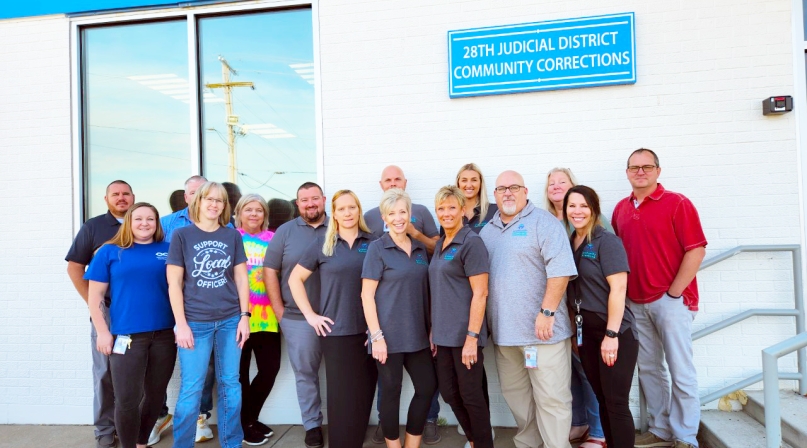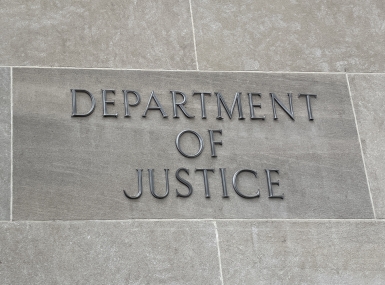Problem:
|
People who are arrested often fail to appear for court-ordered hearings, services and treatment.
|
Solution:
|
Add an instant-notification system for clients and their families.
|
Saline County, Kan. Community Corrections has implemented a program with the software tool UPTrust that has shown increases in court appearance rates and strengthened communication between high-risk, high-need offenders and their probation officers.
UPTrust allows for messaging within the application and sends reminders for court hearings, as well as other services like mental health or substance use treatment appointments. Prior to the county department utilizing the platform, communication between probation officers and clients regarding court hearings and services was done through letters and phone calls and even sometimes resulted in supervisors having to track down a client’s friends and families if they failed to appear.
“It matches where we’re at as a society in 2022 — it’s just giving more opportunities to communicate,” said Andrew Pellant, Saline County Community Corrections pre-trial supervisor. “It was important when we brought it on that everybody understood that we’re not taking away accountability from the client –– they’re still going to be expected to follow through and go to court, go to treatment, go to the office appointments, we’re just finding ways to help aid them to make it there.”
The county’s need for a system like UPTrust was apparent because it found that the largest contributing factor in failure to appear warrants was a lack of communication. The department first heard about the UPTrust platform because the New York City Public Defender Office used it to send court reminders to their clients, so they reached out to the platform and had it tailored to the needs of community supervision, Pellant said.
Because the program was launched in October 2020, it helped make communication much more seamless in the county’s adjustment to the COVID-19 pandemic, Pellant said.
“This generation, you’re just trying to reach them on the level that they’re comfortable with and this program has allowed us to do that, especially when we talk about COVID,” Pellant said. “COVID started right when this program was coming out, so when our courts shut down and we had to do a lot of important communication with our clients, letting them know what’s going on [was important].
“The courts moved to video court, so then we had to help relay, ‘Here’s the app, here’s the passcode to get into court, here’s how you do this,’ so I think us having the program when we did was almost vital in getting through that really bad part of the pandemic.”
The department has found that its drug and alcohol clients who experienced relapse are often more comfortable talking about it via text, so the application’s structure has led to more openness from clients, Pellant said.
“I think it’s more comfortable, it’s hard when you’re in recovery,” Pellant said. “People in recovery will usually relapse several times, and so I think if they build a relationship with their officer, with the treatment court judge, then when mistakes are made for whatever reason, it can be embarrassing, so they’d rather let the officer know via text than have to say it face-to-face.”
Pellant said he thinks the app has strengthened relationships between supervisors and their clients because it’s established a more around the clock sense of support. Many supervisors have also used the application to send out daily messages of encouragement.
“Usually, they come into the office and we don’t see the struggles they have outside the office, so, even if they don’t text or message us, just them knowing that we’re available has been helpful, especially for our drug court clients,” Pellant said. “I think if you expect somebody to really get into that type of personal, professional relationship with you to where they need to trust that you have their best interest when it comes to making decisions about helping them in recovery, you can’t be an 8 a.m. to 5 p.m. probation officer –– I just think you lose that credibility, even if you have good intentions.
“And so, I think them knowing that, ‘Hey, if I’m in relapse mode at 11 o’clock at night on a Friday, I’ll always have access to my officer,’ is helpful.”
While Pellant is aware of other communication tools used for probation services, he said UPTrust has been the best fit for the county because of its cost effectiveness and accessibility. Pellant said he’s helped Reno County, Kan. utilize UPTrust and that its easily replicable for other counties and departments.
“I’ve been to a couple national conferences and there’s a lot of different variations out there, but nothing quite like UPTrust,” Pellant said. “The ones that I’ve seen are attached to a big database platform, which is very expensive and cumbersome … When you work for government agencies, you have certain sums of money that you get, whether it’s what you’re given by your supervision, like the Kansas Department of Corrections for us, or it’s grant funding you apply for, but it’s limited, so you always have to be mindful of the cost.”
Lowering the department’s failure to appear rate helps clients become more engaged in their cases and improves their outcomes, both in the immediate and long-term, Pellant said.
“This is kind of the unsaid thing, but when you have somebody in custody for so long, they are more likely to enter into a plea deal just so they can get out of jail … If we assess people and we get them out of jail, we can get them not only services, but then reminders and we can communicate in different ways to help them not only appear for court cases, but then follow up with whatever else they’ve got going on,” Pellant said.
“It’s just all about community wellness, putting them in a situation where they can reestablish themselves as important figures in their families, because that’s also going to have collateral effects.
“If there are children involved, they’re less likely to find themselves in the criminal justice system if their parents are involved [in their lives], and it goes on the other end — if their parents are not involved, or they’re involved in addiction or in the criminal justice system, then they’re more likely, so we’re just trying to break all those barriers.”




